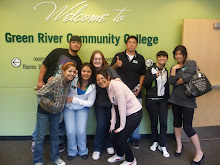Do we really have the right to vote?
The Black Student Union had members of the African American Writers’ Alliance read poetry this week in celebration of Black History Month, and this question came from one of the speakers. Before reading on, I want you to stop and think for yourself—do you feel you have the right to vote?
The speaker had written a poem regarding Section 5 of the Voting Rights Act, regarding preclearance, and how federal protection against states creating arbitrary requirements for people to be able to vote is not a permanent law and has to be renewed every 25 years. But for me, this got me thinking about what the question is truly asking: do we really have the right to influence the political process?
When she asked the question, I responded back with, “Well, I guess that depends on how you define the right to vote. Do I have the right to fill in circles on a piece of paper? Yes. Do I truly have the right to exercise influence over the process? That’s a different question.” And it’s one I’m posing here. So do you really have the ability to exercise your influence?
We all know what it takes to run for office. Often you have to have multiple connections in your community ahead of time, and a significant amount of money to jump-start a campaign. If you’re considering running for U.S. Senate—possibly any state-wide or national office—or higher, unless you’re a millionaire, you’re fighting a tough uphill battle. So running for office will be out of the question for the vast majority of us. And even though we have several political parties, if all our candidates are coming from the same neighborhoods, school systems, and colleges, how will our votes influence the issues that they bring to the legislative process for action?
Another example that comes to mind are the Proposition 8’s and other constitutional amendments and laws barring same-sex couples from having the right to marry in the states in which they pass them. Even though it’s “technically” a more democratic process to be able to vote on laws and similar items through the popular vote process, is it necessarily fair to put every item related to state laws and constitutions to a vote? Is it fair to put civil rights to a popular vote? Often civil rights need legislation to be enacted because they are unpopular at the time, yet are the greater good for society in the long run. No one voted to provide marriage recognition for opposite-sex couples at the time the United States and individual state constitutions were written. No one voted to provide civil rights to White men at the founding of our nation. Does it truly represent a right to influence the political system when other civil rights are placed before the people for a popular vote? Or is it a cover for denying queer people the right to influence the process to protect their civil rights by claiming the results of a popular vote as the fair outcome?
We don’t vote for our President; we vote for electors who vote for the President. We don’t vote directly on bills and laws (which is, frankly, a good thing), we elect people to represent us to do so. And only around 50% of our country votes regularly, mostly affluent, White, older Americans who are NOT representative of the diversity of our nation, especially those Americans who need greater protection under the law.
So, I ask you again, do we truly have the right to vote in this country?
Bryce Hughes
Friday, February 26, 2010
Subscribe to:
Posts (Atom)

